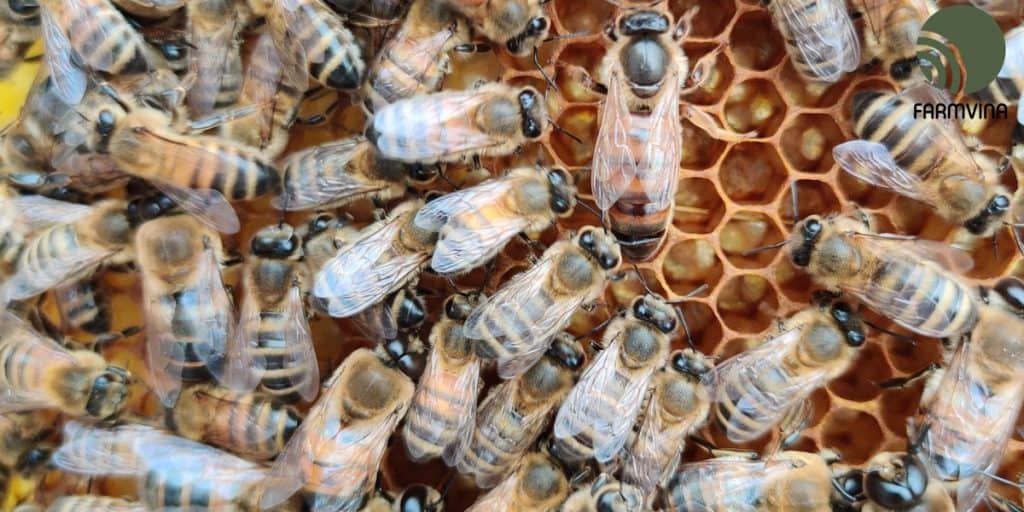Ethiopian coffee beans are highly regarded in the coffee industry for their exceptional quality and distinct flavors. In this article, we will explore the rich history of Ethiopian coffee, the unique characteristics of Ethiopian coffee beans, the different regions and their coffee varieties, the importance of fair trade and sustainability, how to brew Ethiopian coffee at home, and where to buy the beans.
The history of Ethiopian coffee
Origins of coffee in Ethiopia
Coffee has its roots in Ethiopia, where it is believed to have been discovered in the 9th century. Legend has it that a goat herder named Kaldi noticed his goats becoming energized after consuming the red berries from a certain tree. Intrigued, he tried the berries himself and experienced a similar burst of energy. This discovery eventually led to the cultivation and spread of coffee throughout the world.
Traditional coffee ceremonies
In Ethiopia, coffee is not just a beverage but a cultural tradition. The Ethiopian coffee ceremony is a significant part of the country’s social fabric. It involves roasting the coffee beans, grinding them, and brewing the coffee in a traditional clay pot called a jebena.
The ceremony is a symbol of hospitality and community, with participants engaging in conversation and enjoying the rich aroma and flavors of freshly brewed coffee.
The unique characteristics of Ethiopian coffee beans
Flavor profiles
Ethiopian coffee beans are renowned for their diverse and complex flavor profiles. They often exhibit fruity, floral, and wine-like notes, with hints of citrus, berries, and chocolate. The combination of high altitude, fertile soil, and unique heirloom varieties contributes to the exceptional taste and aroma of Ethiopian coffee.
Processing methods
Ethiopian coffee beans are typically processed using two main methods: washed and natural. The washed process involves removing the cherry pulp before drying the beans, resulting in a cleaner and brighter flavor profile. On the other hand, the natural process involves drying the cherries with the pulp intact, imparting a sweeter and fruitier taste to the beans. Both methods contribute to the distinct characteristics of Ethiopian coffee.
The different regions and their coffee varieties
Ethiopia is known for its diverse coffee-growing regions, each with its own unique coffee varieties. Here are three prominent regions and their coffee characteristics:
Sidamo
Sidamo, located in the southern part of Ethiopia, produces coffee beans known for their bright acidity, floral aroma, and fruity flavors. The coffee from this region is often described as having a medium body and a wine-like acidity, with notes of jasmine, bergamot, and blueberry.
Yirgacheffe
Yirgacheffe, located in the Sidamo region, is famous for its washed coffee beans. Yirgacheffe coffee is highly sought after for its delicate and tea-like flavors, with notes of lemon, bergamot, and jasmine. It has a light to medium body and a vibrant acidity that is both refreshing and complex.
Harrar
Harrar, located in the eastern part of Ethiopia, produces coffee beans with a distinct and intense flavor profile. Harrar coffee is known for its fruity and wine-like flavors, with hints of blueberry, strawberry, and dark chocolate. It has a full body and a rich, earthy aroma that is truly unique.
The importance of fair trade and sustainability
Impact on local communities
The coffee industry plays a significant role in the livelihoods of many Ethiopian farmers and their communities. Fair trade practices ensure that these farmers receive fair prices for their coffee beans, enabling them to improve their living conditions and invest in their communities. By supporting fair trade, you contribute to the well-being of these farmers and help create a more sustainable coffee industry.
Environmental considerations
Ethiopian coffee farmers are increasingly adopting sustainable farming practices to protect the environment and preserve the quality of their coffee beans. These practices include organic farming, shade-grown cultivation, and water conservation. By choosing sustainably produced Ethiopian coffee beans, you can enjoy your cup of coffee knowing that it was grown in an environmentally responsible manner.
How to brew Ethiopian coffee at home
Choosing the right beans
When brewing Ethiopian coffee at home, it is essential to start with high-quality beans. Look for beans that are freshly roasted and sourced from reputable suppliers. These coffee beans are available in various roast levels, from light to dark. Experiment with different roast levels to find the flavor profile that suits your preferences.
Grinding and brewing methods
To extract the best flavors from Ethiopian coffee beans, it is recommended to grind them just before brewing. Use a burr grinder for a consistent grind size.
For brewing, traditional methods such as the pour-over or French press can bring out the unique characteristics of Ethiopian coffee. Experiment with different brewing techniques and ratios to find your perfect cup.
Where to buy Ethiopian coffee beans
Local Ethiopian coffee shops
Supporting local Ethiopian coffee shops is a great way to experience the authentic flavors of Ethiopian coffee. These shops often source their beans directly from Ethiopia, ensuring freshness and quality.
Additionally, you can immerse yourself in the rich Ethiopian coffee culture by participating in traditional coffee ceremonies.
Online retailers
If you don’t have access to local Ethiopian coffee shops, online retailers offer a convenient way to purchase Ethiopian coffee beans. Look for reputable sellers that specialize in Ethiopian coffee and provide detailed information about the origin and flavor profiles of their beans.
Many online retailers also offer subscription services, allowing you to receive freshly roasted Ethiopian coffee beans regularly.
Conclusion
Ethiopian coffee beans are truly a treasure in the coffee world. From their rich history and unique characteristics to the diverse regions and their coffee varieties, Ethiopian coffee offers a delightful and memorable coffee experience.
By choosing Ethiopian coffee beans, supporting fair trade and sustainability, and exploring different brewing methods, you can enjoy the exceptional flavors and contribute to the well-being of Ethiopian coffee farmers and their communities. So, grab a bag of the Ethiopian coffee, brew yourself a cup, and savor the taste of this remarkable beverage.
FAQs
What is so special about Ethiopian coffee?
Ethiopian coffee is special because it is known for its unique and distinct flavors. It is often described as having a fruity and floral taste with hints of wine and chocolate. Additionally, Ethiopia is considered the birthplace of coffee, and the country has a rich coffee culture and history.
What is the quality of Ethiopian coffee beans?
Ethiopian coffee beans are known for their high quality. The country has ideal growing conditions for coffee, including high altitudes, fertile soil, and a favorable climate. Ethiopian coffee is typically handpicked and processed with great care, resulting in beans that are full of flavor and aroma.
What is the best coffee bean in Ethiopia?
Ethiopia is home to several coffee bean varieties, each with its own unique characteristics. However, one of the most highly regarded coffee beans in Ethiopia is the Ethiopian Yirgacheffe. It is known for its delicate and floral flavors, with notes of citrus and a smooth finish.
Why is Ethiopian coffee so expensive?
There are several factors that contribute to the higher price of Ethiopian coffee. Firstly, the quality of Ethiopian coffee beans is exceptional, which often commands a premium price. Additionally, the coffee production in Ethiopia is predominantly small-scale and labor-intensive, resulting in higher production costs. Furthermore, the demand for Ethiopian coffee is high due to its reputation and unique flavors, which also contributes to its higher price.
Originally posted 2023-07-12 14:54:35.



